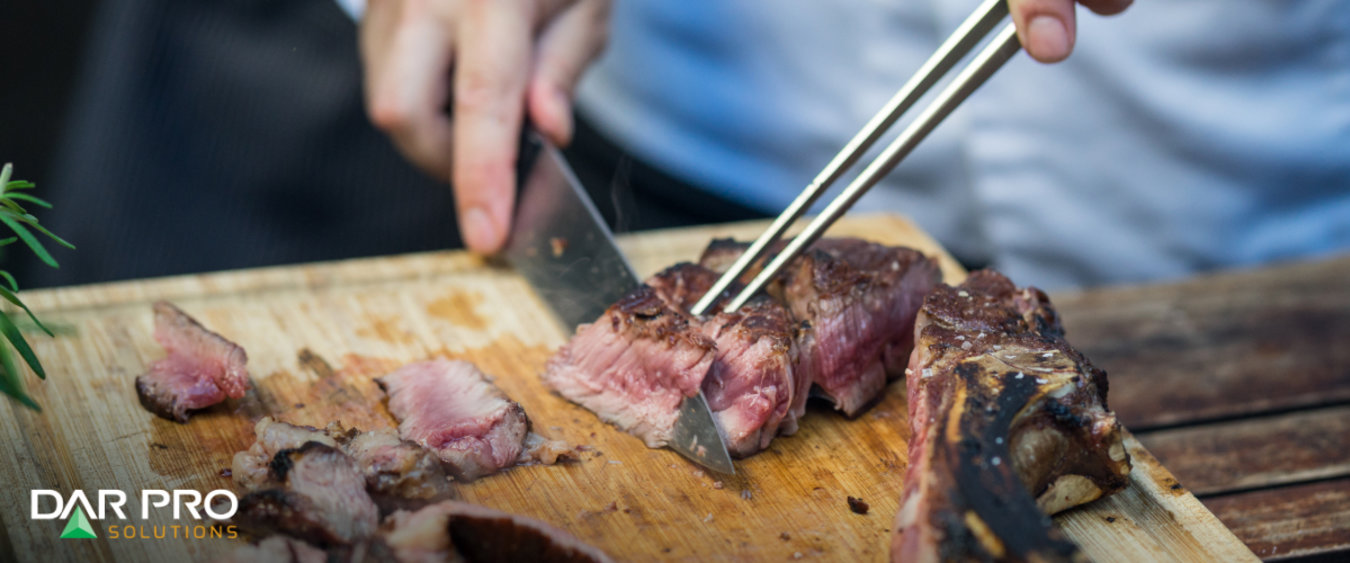Myth #1: It Can Only Go In the Trash or Compost
Approximately one third of food intended for human consumption ends up in landfills in the US. This is an incredible waste of resources.
This negatively impacts the environment twofold:
- In order to produce, transport, and handle the food, a significant amount of carbon dioxide (CO2) emissions are produced.
Once the food is in the landfill and burned, it greatly contributes to greenhouse gasses that are bad for the environment and bad for us.
Composting is another common, yet much less practiced, option for disposing of food waste and byproducts. It’s putting organic waste in an environment that can break it down into basic nutrients. From there it can be repurposed, most often added to soil as a natural fertilizer.
Mostly composting is done by individuals or community groups, but it is possible to do on a larger scale. Commercial, or industrial, composting done at a larger scale with the ability to process a high volume of food waste.
Composting is a better option than sending organic waste to the trash, because it is better for the environment. However the downside to composting is that it takes time, and isn’t incredibly efficient at a large scale.
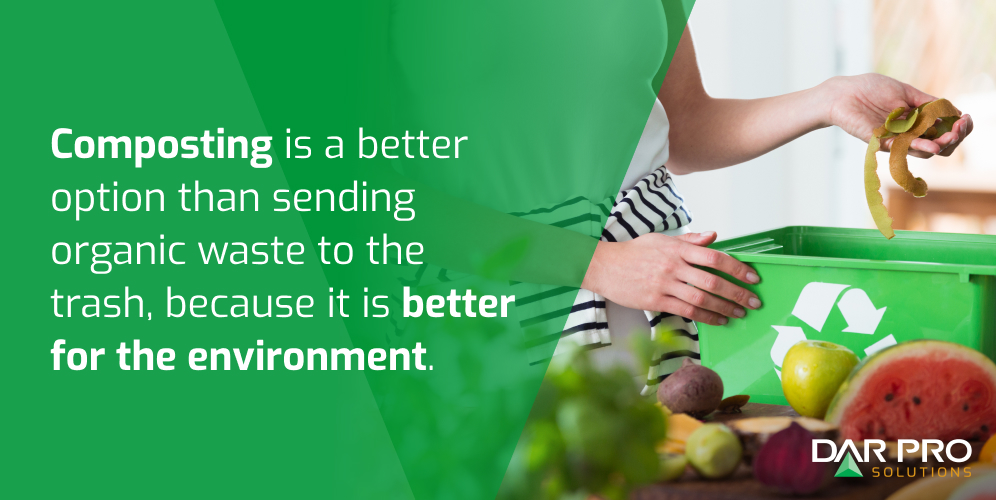
The Reality Is: It Can Be Repurposed and Recycled
Composting or ending up in the trash are not the only two options for food waste. Food by-products can be repurposed and recycled to have a second life with purpose through a process called rendering.
Aside from upcycling valuable organic material, the process of rendering used cooking oil and meat by-products plays a mission-critical role in maintaining a healthy environment by:
- Diverting material from the landfill and capturing carbon to reduce GHG
- Recycling nutrients and energy while returning water to the environment
- Decreasing the demand for fossil fuels by creating ingredients used for sustainable fuel production
DID YOU KNOW? The rendering industry does all this within hours of receiving materials versus the weeks or months it takes some popular alternative methods.
Rendered meat can be transformed into a variety of edible and inedible materials. Edible products to humans originate with rendered meats include gelatin, tallow, and lard. Inedible products include animal and pet food, organic fertilizers, beauty products, soaps and adhesives, and renewable diesel.
Used cooking oil that has finished its life in the kitchen can be repurposed into a variety of inedible products such as soaps and beauty products, pet food, industrial lubricants, oil for lamps, and most importantly, biofuels. Not only can used cooking oil be used to create renewable fuel, but it is the key ingredient.
There are a multitude of benefits to recycling inedible animal parts and used cooking oil into these materials aside from simply not letting them go to waste. Repurposing these materials helps significantly reduce the release of greenhouse gasses, along with preventing overuse of landfills that are already past capacity.
It helps to prevent organic waste contamination in water sources and in the food supply. Recycling these products can also help to prevent the spread of disease.
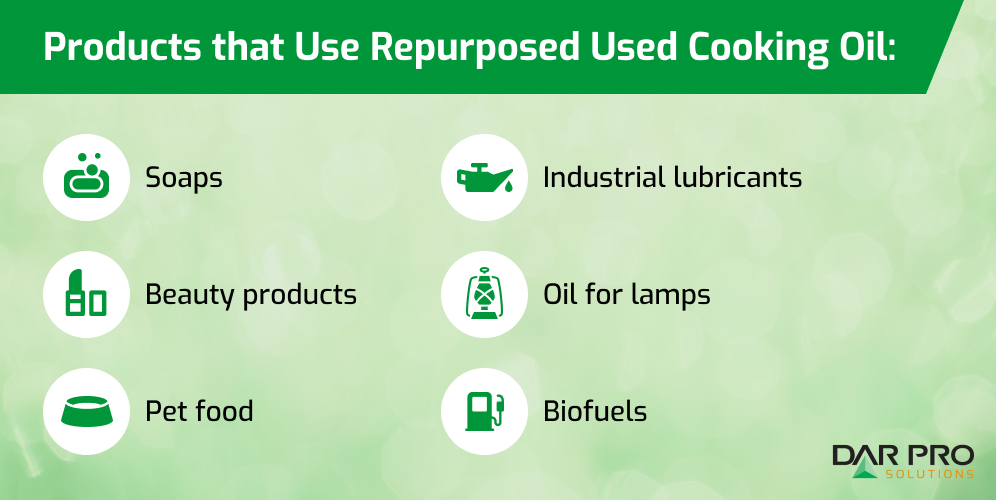
Myth #2: It Has No Nutritional Value
After all, we took the useful parts, and all that’s left is really only good for non-edible things and utility cooking purposes, right?
Wrong!
The Reality Is: It’s Chock Full of Nutrition
Even though we took out the useful parts we as humans want to eat, there are still plenty of nutrients in what is leftover that can be used to enhance pet foods and fertilizers.
We attach a negative stigma to the word “by-product” when, in reality, these animal by-products here in the United States are chock full of usable nutrients for animal feed, farming, and gardening.
When it comes to feeding your household pets or livestock, the byproducts we leave behind, such as organs and bones, can be used to make the animal food healthier and more flavorful. Often, these “by-products” are more nutrient dense than the muscle meat that we eat.
Bones, feathers, and blood can be turned into meal and mixed into feed or fertilizer. There are nutrients of some kind in all parts of an animal, so why not use it all when possible so none of it goes to waste?
DAR PRO Solutions sister company Nature Safe Organic Fertilizers, uses by-products in fertilizers to strengthen and enrich the soil in order to promote healthy plant growth. The nutrients in the fertilizer provide sustenance for microorganisms in the soil so that the plants can not only grow, but thrive.
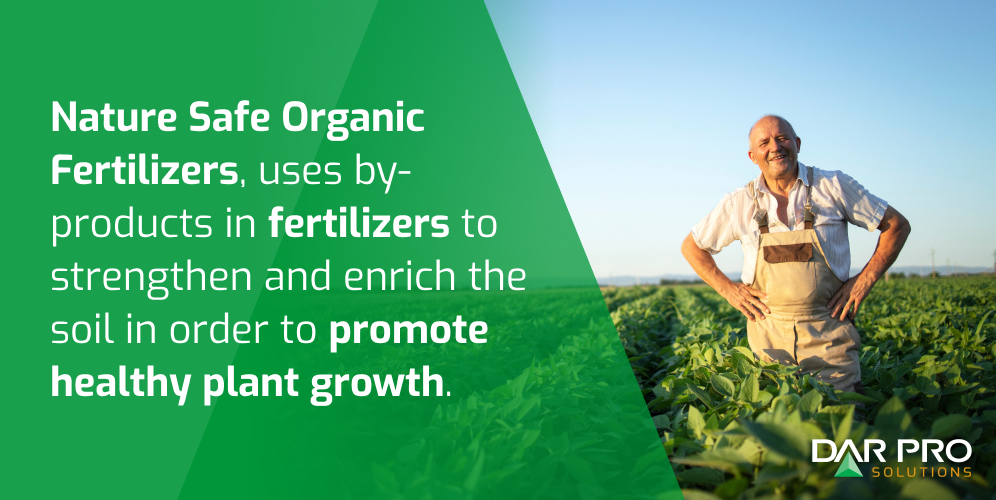
Myth #3: Petroleum Diesel Alternatives Aren’t Good Fuel
There are a lot of misconceptions surrounding biofuel. It’s expensive, it can’t do what conventional diesel does, it’ll freeze faster than conventional oil, to name a few. The lack of knowledge and the misinformation about the product deters people from using it.
Just like any new innovation, it takes some time for people to learn about it, decipher fact from fiction, and trust it enough to use it.
The Reality Is: It’s Even More Efficient, and Burns Cleaner
Renewable diesel, which is slightly different from other biofuels, is the best alternative to petroleum diesel to date.
Feedstocks, rendered fats, and cooking oils are converted to become key ingredients necessary in the production of biofuel and renewable diesel. Renewable diesel yields a product chemically identical to traditional diesel, which means it can be used in place of conventional diesel without needing any changes to fuel systems.
Unlike biofuel, renewable diesel has no cold flow problem or transportation restraints, and has a higher cetane rating than both biofuel and petroleum diesel. Renewable diesel is able to use what would otherwise be waste to create a cleaner burning, just as effective, fuel alternative to petroleum diesel and a superior option to biofuel.
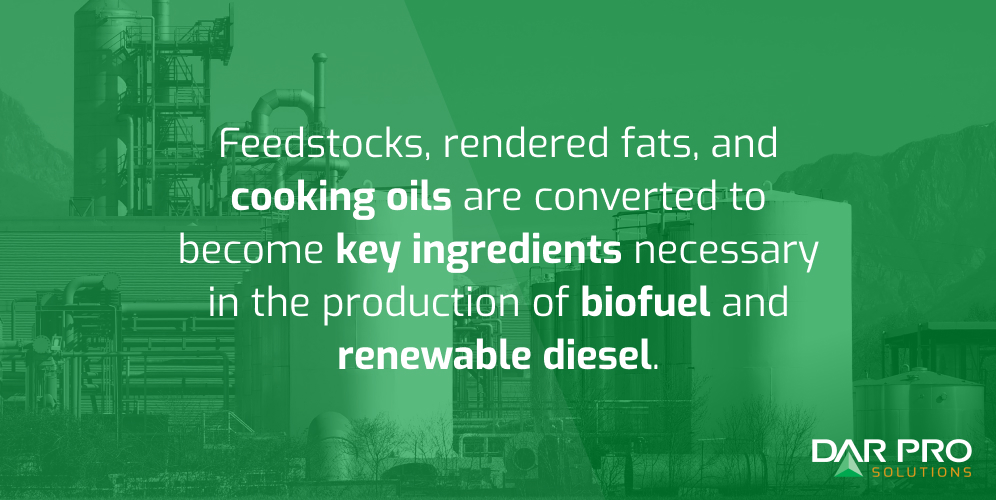
Myth #4: I Have to Dispose of My Own Grease and Food By-Products
It is true that for some time commercial kitchens and grocery stores have long had to dispose of their own grease and by-products. Even if it gets collected, they still have had to hand-carry hot grease across parking lots to get it where it needs to go to be picked up. However, there is a better way.
The Reality Is: DAR PRO Takes Care of Everything For You
There are much better, easier, and convenient options now. Dar Pro helps commercial kitchens and grocery stores recycle waste from food products with ease.
DAR PRO Solutions provides a variety of used cooking oil collection systems made to fit your space and your needs. Regardless of which option you choose, it’s all easier and safer than doing it yourself
Our technicians collect used cooking oil based on your schedule. Reach out today to get your UCO system installed.
We deliver all of the used cooking oil that we collect to Diamond Green Diesel who then transforms it into renewable diesel. Enlisting DAR PRO for help collecting, recycling, and repurposing your used cooking oil and byproducts is better for the environment and better for you.
Contact Sales
For customer service inquiries call our toll free number (855) 327-7761
By submitting this form I agree to the privacy policy including the usage of contact details to contact me for marketing purposes.
